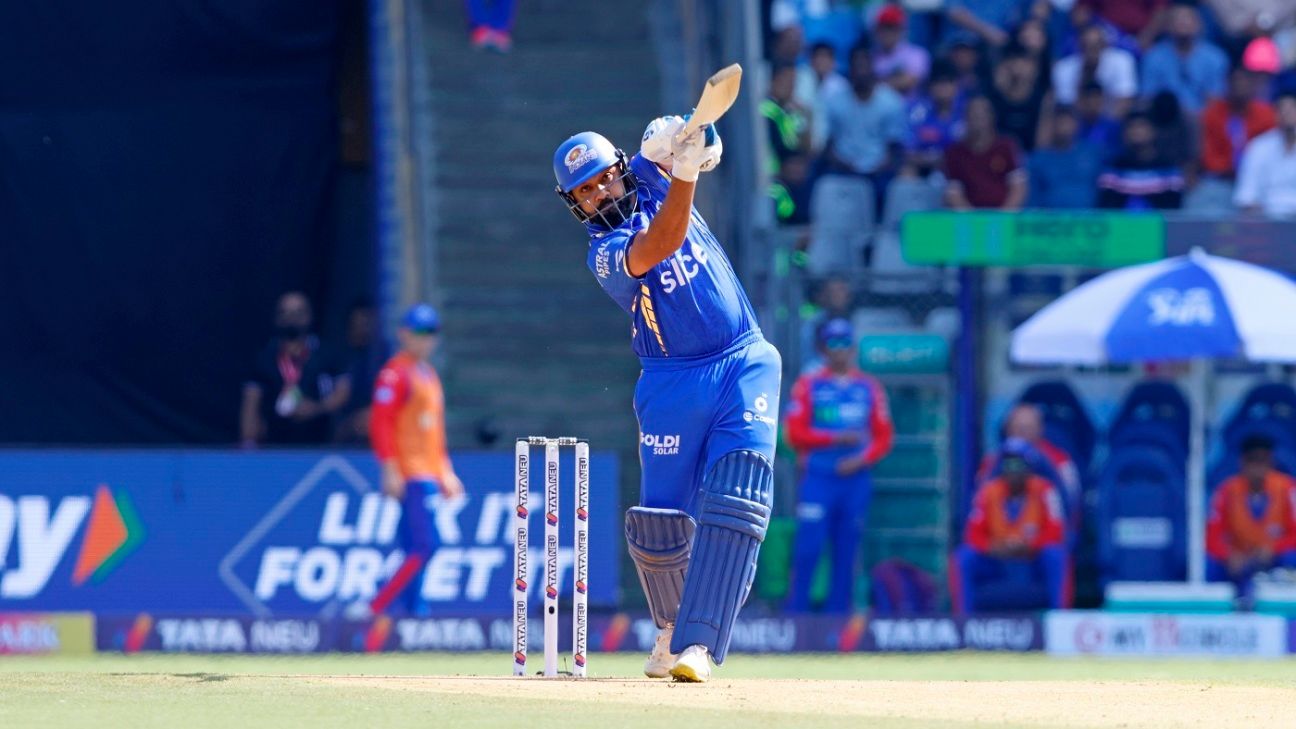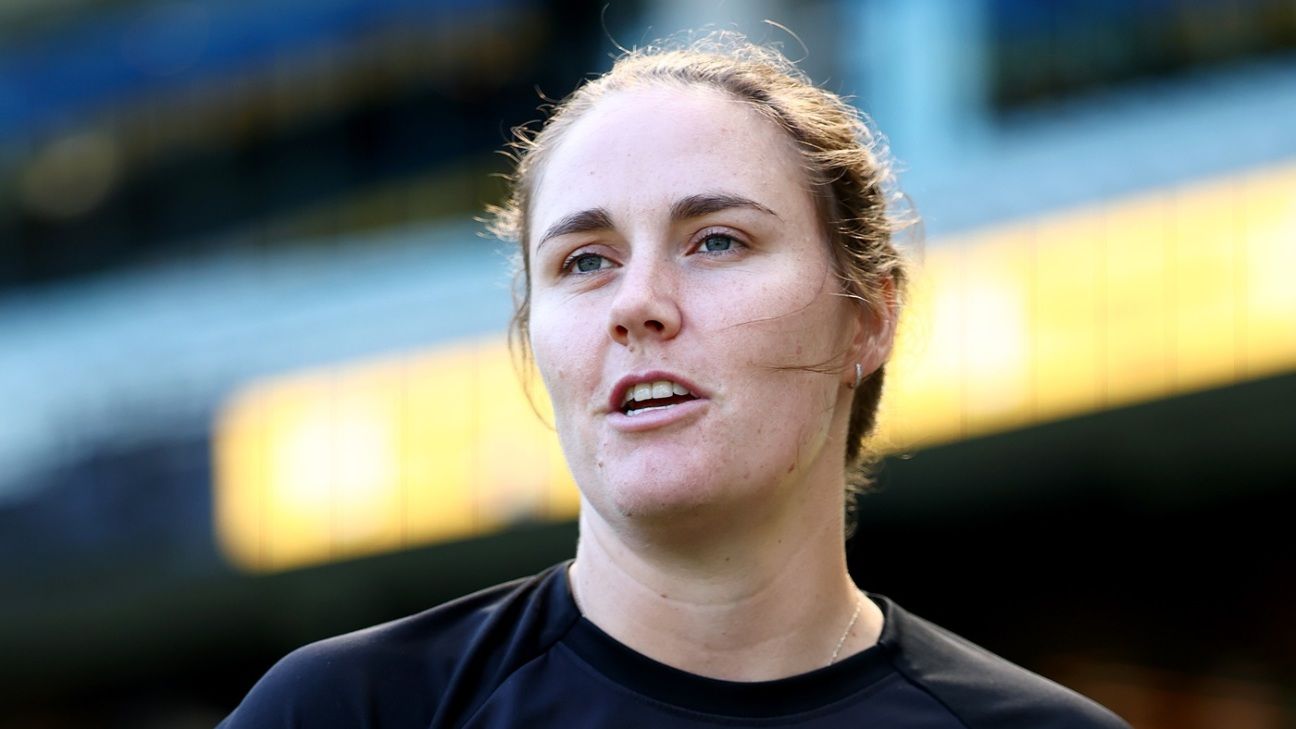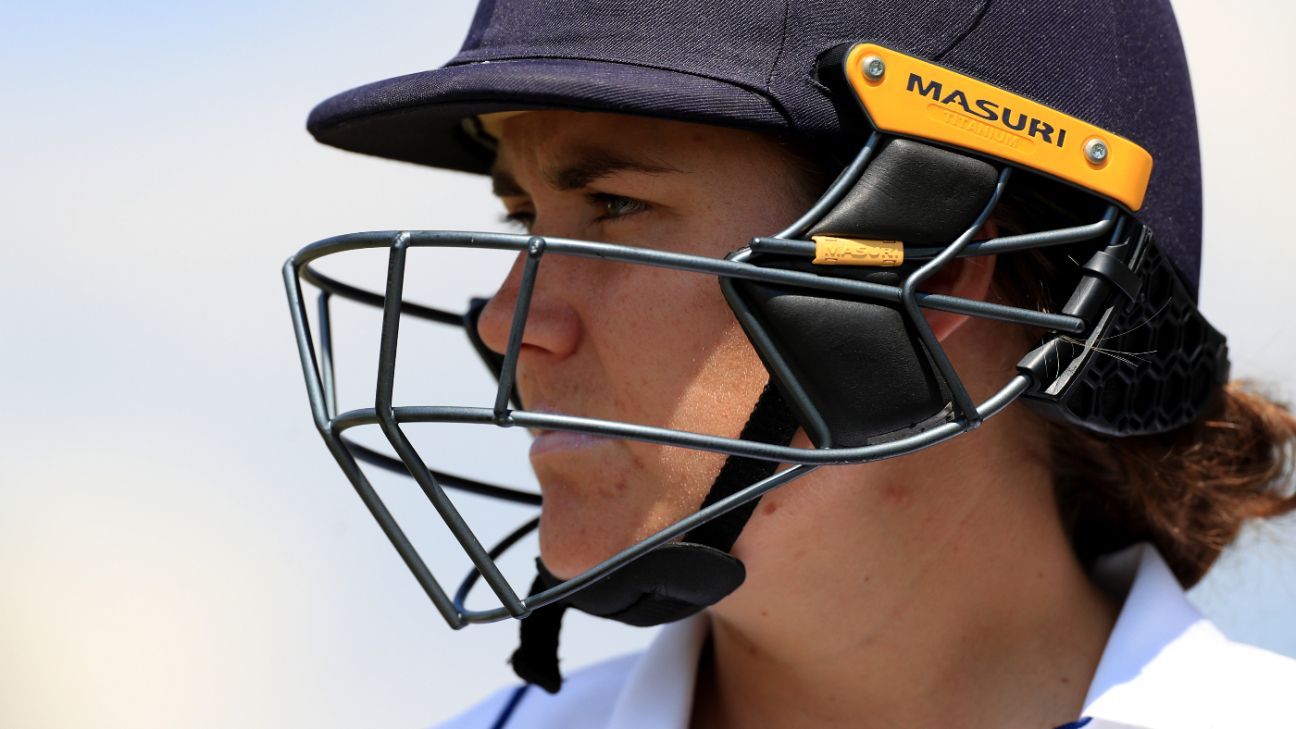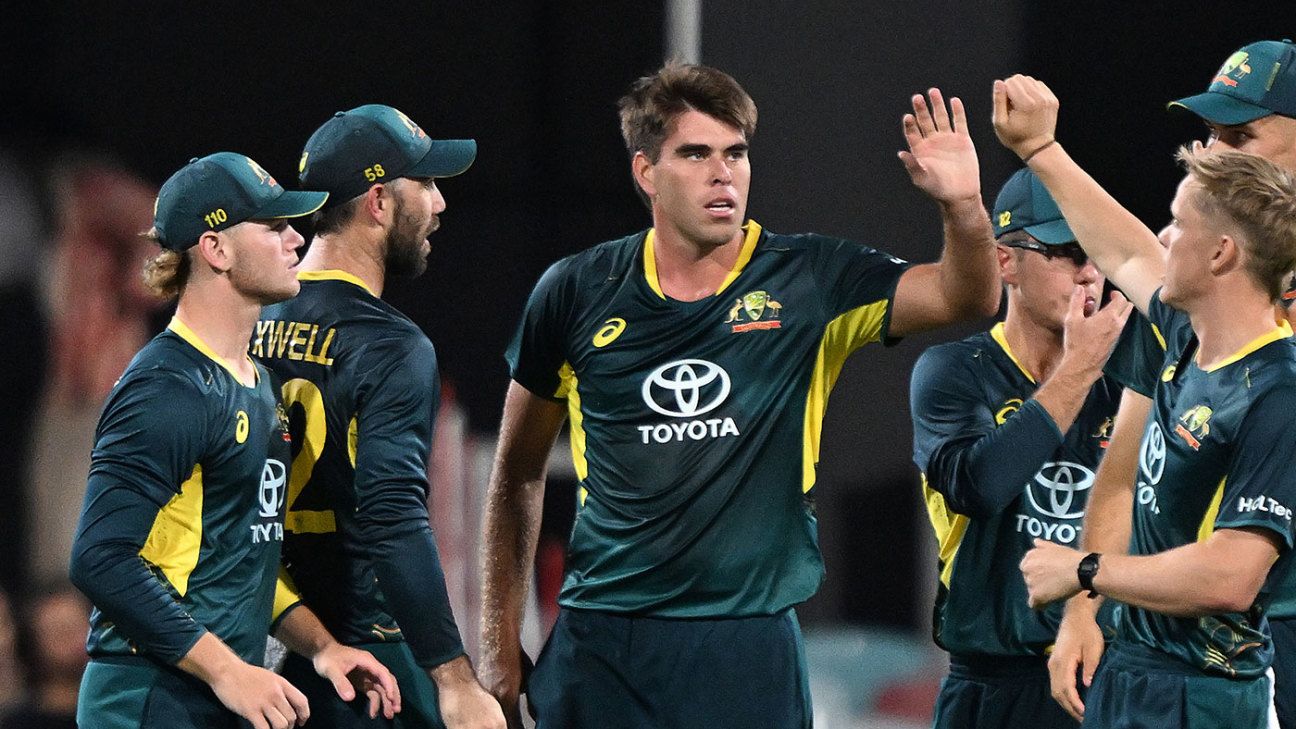Cliff Notes – The highest IPL total to not include an individual fifty is 191 runs. This was achieved by the Royal Challengers Bangalore against the Delhi Capitals in 2013.
- Delhi Capitals scored 203 runs without a single player reaching fifty, with Axar Patel top-scoring at 39.
- This total is not the highest in IPL history without a half-century; four other teams have surpassed it, including Mumbai Indians with 234 runs in 2024.
- Gerry Alexander’s four consecutive run-outs during the 1958-59 tour of India is notable, but not the worst in first-class cricket history.
Delhi Capitals scored 203 the other day without an individual half-century. Was this the highest T20 total without a fifty? asked Deepak Krishnan from India
The match you’re talking about was in Ahmedabad on April 19: Delhi Capitals made 203 for 6, with a highest individual contribution of just 39, from their captain Axar Patel. Gujarat Titans passed them with four balls to spare.
There have been four higher innings totals in the IPL that didn’t include an individual half-century. Highest of all is Mumbai Indians’ 234 for 5 against Delhi Capitals at the Wankhede Stadium in 2024, when the highest individual contribution was Rohit Sharma’s 49. Punjab Kings made 208 for 5 against Royal Challengers Bangalore in Navi Mumbai in 2022 (Shikhar Dhawan and Bhanuka Rajapaksa both made 43); Delhi had 207 for 8 against Rajasthan Royals at the Wankhede in 2022 (Rishabh Pant 44); and Kolkata Knight Riders made 206 for 5 against RCB in Bengaluru in 2019 (Andre Russell 48 not out from 13 balls).
I was looking at some old scorecards, and noticed that the West Indian captain Gerry Alexander was run out four times running while on tour in India in 1958-59. Was this a record for poor running?! asked Henry Mitchell from England
You’re right that the West Indian captain and wicketkeeper Gerry Alexander was run out four times running during that tour. Two of the dismissals were in Tests; the sequence also included an innings in which he was not out. That turns out to be not quite the worst exhibition of running between the wickets in first-class cricket: the Yorkshire seamer Bob Platt was run out five times running between 1957 and 1959 (his sequence included four not-outs). Six other players have had four successive run-out dismissals.
The Test record is three successive run-outs, suffered by England’s John Jameson in 1971, and Guy Whittall of Zimbabwe in 1997-98 (that sequence was punctuated by an innings of 203 not out).
Have any Test cricketers been born in Kenya? asked Niranjan Shah from Kenya
It’s one of cricket‘s endearing oddities that three Test players have been born in Kenya, and they were all active at around the same time, mainly during the 1980s. The first to make his Test debut was Derek Pringle, in 1982 while still at Cambridge University. Pringle was born in Nairobi in 1958 while his father – who appeared for East Africa in the first men’s World Cup, in 1975 – was working there. Derek went on to play 30 Tests and 44 one-day internationals, including the 1992 World Cup final.
Qasim Omar, born in Nairobi in 1957, made his debut for Pakistan in 1982-83 after some high-scoring feats in domestic cricket. In 26 Tests he scored three centuries – two of them doubles – before falling out with Imran Khan.
Kenya’s third man was Dipak Patel. Born in Nairobi in 1958, he was a Worcestershire regular at a young age, but eventually became a naturalised New Zealander after spending several northern winters there. He made his Test debut in 1986-87, and eventually played 37 Tests and 75 ODIs, including the World Cups of 1987, 1992 and 1996. His highest Test score was 99 in Christchurch in 1992, an innings ended when he was run out from a return from near the boundary by Pringle.
Mahmudullah puts one away Getty Images
How many men scored a century in their final Test match? asked Anupam Sircar from India
At present there are 47 men who scored a century in their last Test match. That number includes Essex’s Jack Russell, who actually made two, and eight current players who will presumably appear again. First on the list was the Kent wicketkeeper Harry Wood, who made 134 not out in his fourth and final Test for England, against South Africa in Cape Town in 1892.
Most of the men concerned were not selected again for various reasons to do with form or sometimes big gaps between matches. A few of them had already announced their intention to retire before bowing out with a hundred, notably Bill Ponsford, Raman Subba Row, Seymour Nurse (who made 258 in his final innings, in Christchurch in 1969), Greg Chappell, Jacques Kallis, Brendon McCullum and Alastair Cook. Both Nasser Hussain and Mahmudullah seem to have decided to retire in the middle of Test matches in which they went on to score hundreds in what they would have known to be their final matches.
I noticed that three of this year’s Wisden Cricketers of the Year play for Surrey. Has there ever been a year in which all five came from the same team? asked Michael Broughton from England
You’re right that three of this year’s Wisden Five – Gus Atkinson, Jamie Smith and Dan Worrall – play for Surrey. In case anyone missed last week’s announcement, the other two were Sophie Ecclestone and Liam Dawson (and a reminder that the award, which can be won only once, is based on performances in the previous English season).
Three from one county is a rare achievement, but is perhaps not surprising as Surrey completed a hat-trick of County Championship titles last year. It’s not quite the English record: Yorkshire had four of the Five in 1901 – Schofield Haigh, George Hirst, Tom Taylor and John Tunnicliffe. The exception was Reginald “Tip” Foster of Worcestershire, who would soon score a record 287 on Test debut in Sydney in 1903. Surrey also had three in 1907 and 1958.
No English side has ever provided all five of the Five, but in 1949 all of them were members of Don Bradman’s “Invincible” touring team the previous summer – Lindsay Hassett, Bill Johnston, Ray Lindwall, Arthur Morris and Don Tallon. The 1962 Almanack also featured five Australians – four from the previous summer’s touring team (Richie Benaud, Alan Davidson, Bill Lawry and Norman O’Neill), plus the 42-year-old Bill Alley, who scored more than 3000 runs that season for Somerset.
In addition, in 1997, 2000 and 2002 there were no England-qualified players among the Five. For the full list of Wisden’s Cricketers of the Year, click here.
Use our feedback form, or the Ask Steven Facebook page to ask your stats and trivia questions





